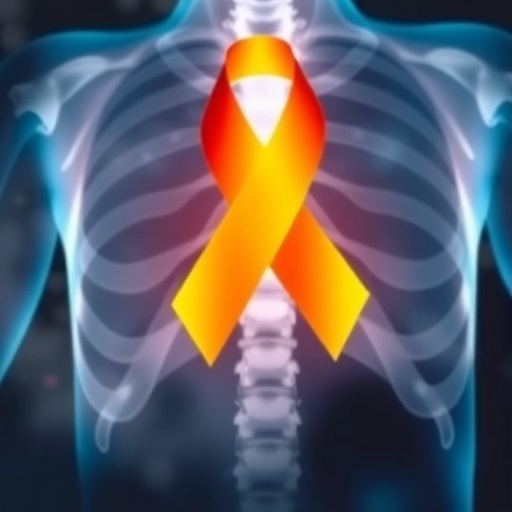A comprehensive new analysis published in The Lancet unveils a stark and unsettling reality about the global cancer landscape: since 1990, the number of new cancer cases worldwide has more than doubled, reaching an estimated 18.5 million in 2023. Meanwhile, cancer-related deaths have surged by 74%, climbing to 10.4 million annually. Remarkably, this dramatic rise affects predominantly low- and middle-income countries (LMICs), underscoring global disparities in cancer incidence and mortality that demand urgent attention.
Key to understanding these trends is the demographic transition that the world is undergoing. While cruderates for new cancer cases and deaths are escalating, age-standardized rates—adjusted for population age differences—actually exhibit a decline globally. This paradox points to population growth and an aging demographic as principal drivers behind the escalating cancer burden, rather than a straightforward increase in cancer risk per individual. Despite these positive signs of medical and technological progress, the future projections remain grim. By 2050, new cancer cases could skyrocket to 30.5 million annually, with deaths potentially reaching 18.6 million, promising a formidable challenge to global health systems.
The burden is not evenly spread. High- and upper-middle-income countries have seen improvements in age-standardized cancer incidence and mortality rates over the past three decades, reflecting advancements in prevention, early detection, and treatment. Conversely, low-income and lower-middle-income countries are witnessing increases in both incidence and mortality rates. Lebanon demonstrates the most pronounced uptick, with incidence and mortality rates more than doubling, while the United Arab Emirates and Kazakhstan have recorded significant declines in incidence and death rates, respectively. These dichotomies expose the unequal distribution of healthcare resources and intervention efficacy across regions.
Analyzing cancer types, breast cancer now overtakes all others as the most diagnosed malignancy worldwide, reflecting shifting epidemiological patterns partly influenced by lifestyle changes and improved diagnosis. Contrastingly, tracheal, bronchus, and lung cancers remain the leading cause of cancer-related fatalities globally, with tobacco use as the predominant risk driver.
Critically, the study identifies that more than 40% of global cancer deaths stem from 44 modifiable risk factors, notably behavioral determinants such as tobacco use, unhealthy diets, and metabolic abnormalities including high blood sugar. Tobacco alone accounts for 21% of all cancer deaths. This highlights a promising potential for preventive strategies that target lifestyle factors, especially tailored to country-specific contexts. In low-income countries, unsafe sex, linked to infection-related cancers, emerges as a major risk factor, reflecting the intersection of infectious disease burden and cancer risk.
Gender differences in risk factor attribution reveal that men bear a greater proportion (46%) of cancer deaths linked to modifiable behaviors than women (36%). Men’s cancer mortality is predominantly influenced by tobacco, alcohol, occupational exposures, and air pollution, while women’s cancer deaths are primarily associated with tobacco, unsafe sex, diet, obesity, and hyperglycemia. This nuance emphasizes the need for gender-specific public health interventions to effectively curb cancer mortality.
The growing inequity in cancer outcomes beckons for urgent, equitable, and multi-sectoral cancer control efforts. The need to expand access to timely and precise diagnosis, curative treatments, supportive care, and preventive measures is paramount, especially in LMICs where resources are limited, and cancer control policies are insufficiently prioritized or funded. Interdisciplinary and cross-sector collaboration will be vital to implement cost-effective interventions and close the widening gap in cancer burden.
Data underpinning this analysis originates from extensive population-based cancer registries, vital registration systems, and interviews with caregivers, spanning 204 countries and territories over a 33-year time span. The analysis scrutinizes 47 cancer types and 44 risk factors, advancing our understanding of cancer epidemiology and forecasting the future burden under current trajectories. However, data quality limitations, especially from resource-constrained settings, persist, emphasizing the critical need to enhance cancer surveillance infrastructures globally.
The study’s authors also note that current estimates may understate cancer burdens linked to infections such as Helicobacter pylori and Schistosoma haematobium, infections prevalent in some LMICs. The ongoing impact of the COVID-19 pandemic and recent geopolitical conflicts are yet to be fully integrated into projections, as are potential future scientific breakthroughs that could significantly alter cancer epidemiology.
Experts not involved in the study underscore the imperative for governments and international bodies to bolster funding, strengthen health system capacities, and eliminate cancer health disparities. Without decisive and collective global action, the surging cancer burden threatens to overwhelm healthcare systems, exacerbate inequities, and undermine progress towards the United Nations Sustainable Development Goal of reducing premature mortality from non-communicable diseases by a third by 2030.
In summary, this landmark Global Burden of Disease Cancer Collaborators’ report serves as a clarion call to the global health community—highlighting the escalating cancer crisis, emphasizing modifiable risk factors’ role, and spotlighting stark regional disparities. Tackling these challenges demands integrated strategies encompassing prevention, early detection, effective treatment, and robust data systems, prioritizing equitable access to healthcare irrespective of national income status. Only through urgent, comprehensive, and globally coordinated efforts can the tide of cancer’s growing impact be stemmed.
Subject of Research: People
Article Title: The global, regional, and national burden of cancer, 1990–2023, with forecasts to 2050: a systematic analysis for the Global Burden of Disease Study 2023
News Publication Date: 24-Sep-2025
Web References: [Full data and supplementary information links available via The Lancet press office]
References: Global Burden of Disease Study 2023, The Lancet, DOI: 10.1016/S0140-6736(25)01635-6
Keywords: Health and medicine, Cancer




